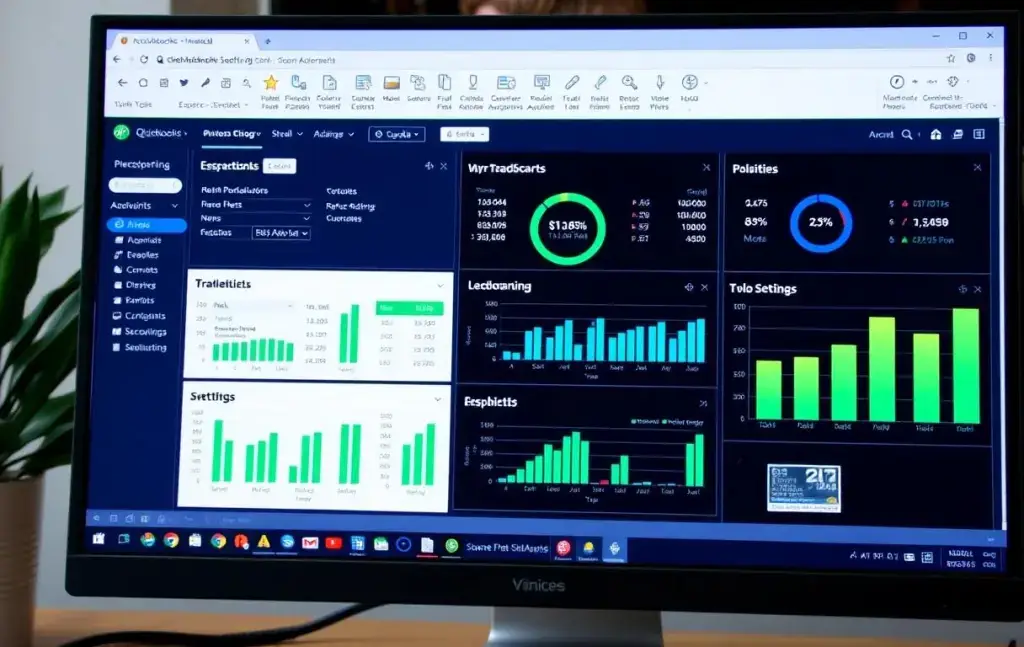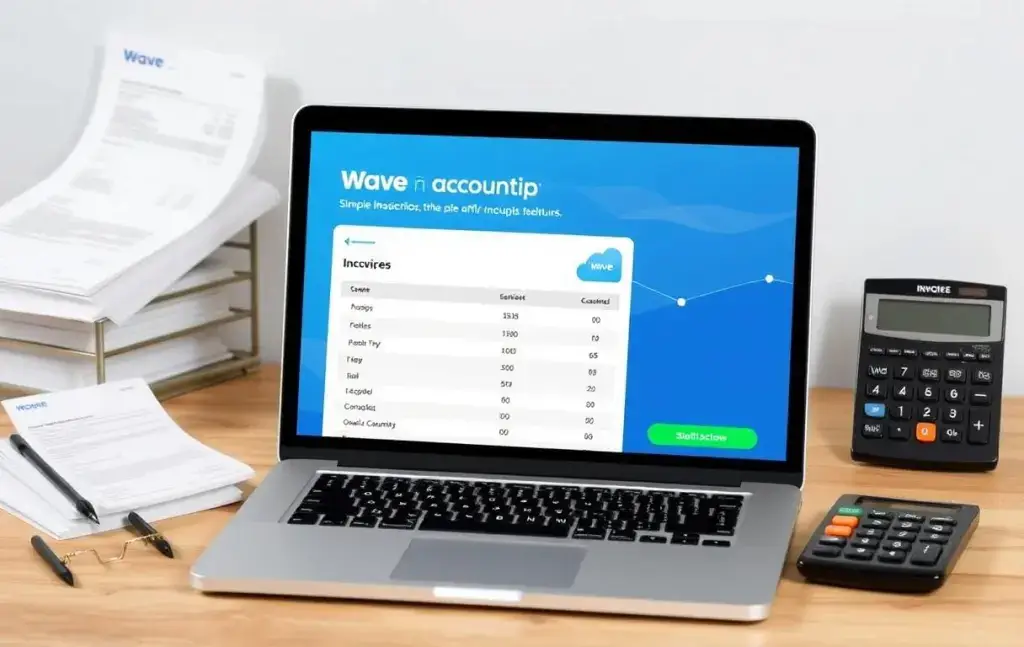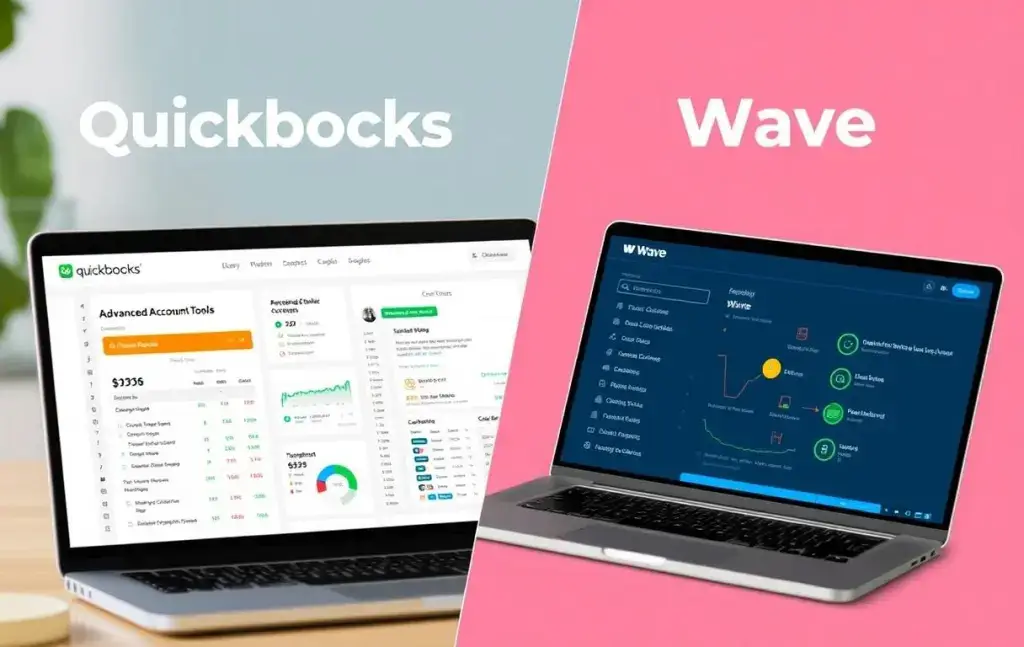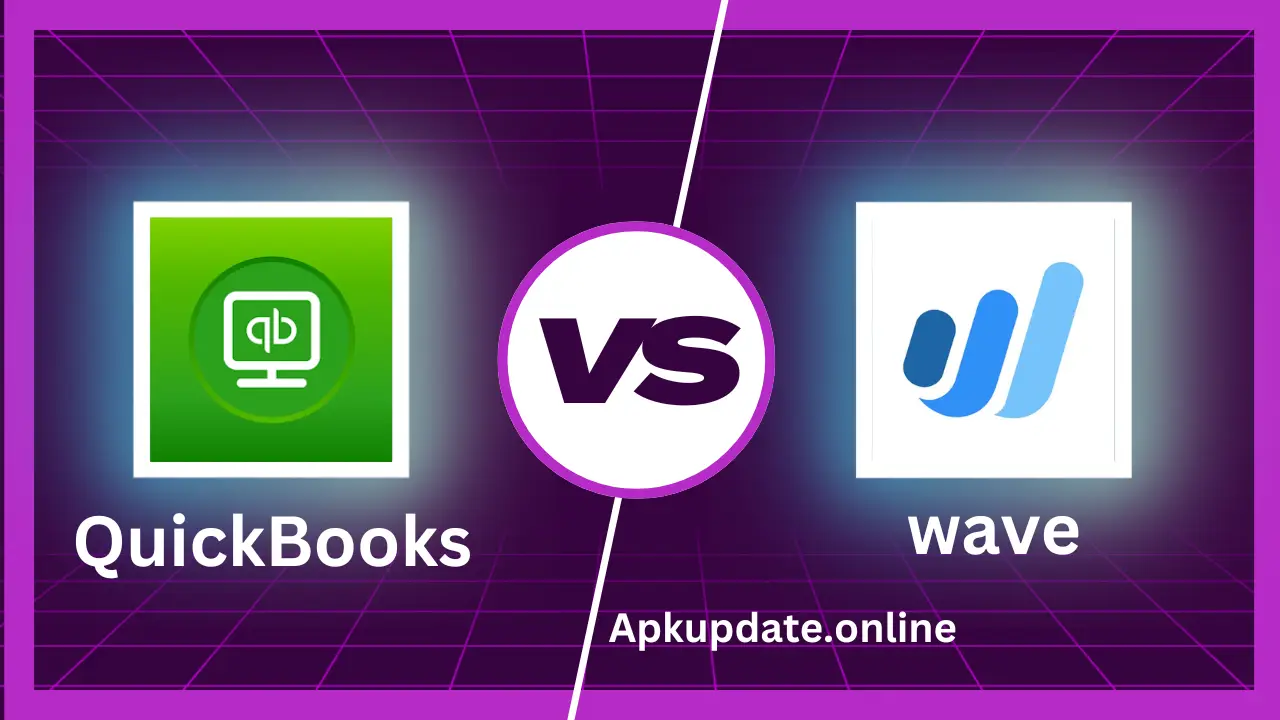Introduction
Accounting software facilitates business accounting and allows you to keep track of all costs. The two most excellent ones are QuickBooks and Wave. These tools both function to simplify accounting complexities but with different target clients. Here is an in-depth comparison between QuickBooks and Wave so that you can make a more educated decision for your needs:.
Table of Contents
- Introduction to QuickBooks
- Introduction to Wave
- Key Features of QuickBooks
- Key Features of Wave
- Ease of Use
- Pricing Comparison
- Performance and Integration
- Comparison Table: QuickBooks vs Wave
- Which One Should You Choose?

Introduction to QuickBooks
QuickBooks, by Intuit, is the most trending accounting tool heavily used by small to medium enterprises. It allows features from basic bookkeeping to some advanced accounting tools, which makes it perfect for those who need more complexity.
Must-have benefits of QuickBooks
Enables income and expense tracking.
Payroll services.
Tax calculation in invoicing
Integrates with numerous third-party tools such as payment processors and CRMs.
Introduction to Wave
Wave is an accounting tool free for freelancers, startups, and small businesses. Wave is not as advanced in its features compared to QuickBooks, but it’s very user-friendly and quite appropriate for anyone who wants basic accounting support.
Key Benefits of Wave:
- No subscription fees; it’s free to use.
- Simple interface for novices.
- Invoicing and scanning receipts.
- Suitable for businesses with fewer financial complications.

QuickBooks Key Features
QuickBooks offers different tools to effectively manage the finances of a business.
- Invoicing and Payments: It offers custom invoices and collects payments online.
- Expense Tracking: Automatically imports and categorizes transactions from bank accounts.
- Payroll Services: The tool handles the payment, tax, and benefits of the employees.
- Tax Management: It generates reports on tax collected and tracks deduction.
- Multi-User Access: This tool enables the members of the team to access different financial data in a coordinated effort.
Mobile App: This application has the ability to change or pull information straight from a users’ phones using QuickBooks.

Key Features of Wave.
Free Accounting Tools: tracks all income, expenses, cash flow with no subscription.
Invoicing: Sends professional invoices to customers and
Receits Scanner: upload receipts to have your books organized.
- Payment Processing: Accept Credit Card and Bank payments through it (charges apply).
- Reports: Generate basic financial statements like profit and loss reports.
Ease of Use
QuickBooks
QuickBooks is a heavy tool, though not impossible to start up with, given its array of advanced features. Product offers tutorials and guides available for use by the customer. It suits business persons who have an accounting experience or have a professional accountant within their reach.
Wave
Wave is intuitive and easy to understand, perfect for a beginner or someone who has never even dabbled in accounting. The setup is clean and easy to set up step by step for small businesses and freelancers.

Price Comparison
There is one major price difference between QuickBooks and Wave.
QuickBooks Pricing
QuickBooks utilizes a subscription service. Their plans include the following:
- Simple Start: $30/month (has basic features).
- Plus: $85/month (project tracking and multi-user access). – Advanced: $200/month (for business with more complex needs).
QuickBooks also has payroll add-ons, but this will be an additional fee.
Wave Pricing
Wave is free, free, free for its accounting and invoicing tools. Payment processing comes with tiny fees: 2.9% + $0.30 per credit card transaction. For bank payments (ACH transfers), 1%.
Wave is good for small businesses with lean budgets since it is sold at a cost-effective price point.
Watch Now: All About CapCut Reviews

Performance and Integration “
QuickBooks Performance
QuickBooks is stable and reliable; it will suit any-size business. The fact that QuickBooks can integrate itself with more than 650 other apps such as Shopify, PayPal, and Stripe makes QuickBooks as versatile as any other.
Wave Performance
Wave is good for small-scale operations. Although it doesn’t come with as many integrations like QuickBooks, it actually integrates with a payment system called Stripe. Wave works great for simple accounting activities.

Comparison Table: QuickBooks vs Wave
| Feature | QuickBooks | Wave |
|---|---|---|
| Price | Starting at $30/month | Free |
| Ease of Use | Moderate Learning Curve | Beginner-Friendly |
| Invoicing | Advanced Customization | Basic Customization |
| Expense Tracking | Automatic Categorization | Manual Input Required |
| Payroll | Add-On Service Available | Not Included |
| Mobile App | Yes | Yes |
| Best For | Small to Medium Businesses | Freelancers and Startups |
| Integrations | 650+ Apps | Limited |
| Tax Management | Advanced | Basic |
Which One Should You Choose?
Deciding between QuickBooks and Wave depends on the size of your business, its needs, and your budget.
Choose QuickBooks If:
You have a medium-sized business or need advanced accounting tools.
Your business has employees and requires payroll services.
You want detailed tax management and financial tracking.
Choose Wave If:
- You are a freelancer or a small business with simple accounting needs. – You will use free accounting software. – You require the most basic functions in invoicing and tracking your expenses.

Conclusion
QuickBooks and Wave are two pretty great accounting tools, but for different users. QuickBooks is robust and suited for demanding businesses that require a lot of functionality and integration, while Wave is free and relatively simple, perfect for a freelancer or small business requiring just simple functionality.
Review your requirements and budget before choosing from either of these. Whether you choose QuickBooks or Wave, whichever you use, surely will maintain your organized record of personal finances and your business money. It all boils down to book managing; both are efficient systems for keeping financially organized.

